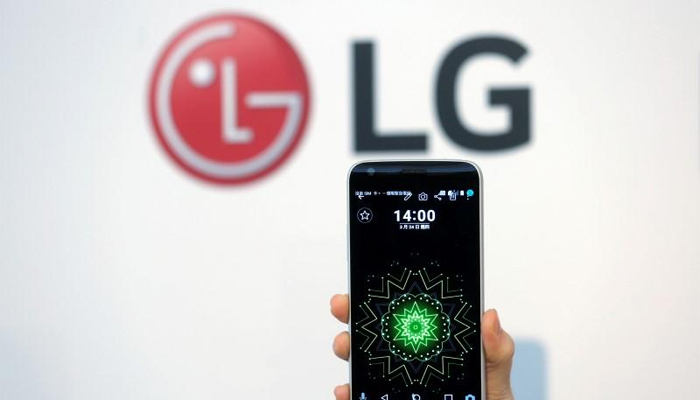LG adds Google AI in ´smart home´ push
The AI platform is 'open' to utilizing software made by other companies
January 09, 2018

LAS VEGAS: Consumer electronics titan LG on Monday proclaimed this year a "tipping point" for smart homes, pushing hard into artificial intelligence and building Google Assistant into a smart speaker.
LG Electronics is developing technology designed to enable its appliances, televisions and other devices adapt to users and collaborate to handle tasks.
The AI platform is "open" to utilizing software made by other companies, LG chief technology officer I.P. Park said during a press event on the eve of the official opening of the Consumer Electronics Show in Las Vegas.
"The world has become just too complex for just any single company to insist on a proprietary, closed solution," Park said.
LG collaborators include Google and Alexa creator Amazon, according to the South Korea-based consumer electronics titan.
"2018 will be the tipping point for the smart home and, more important, for the smart connected lifestyle," LG US marketing vice president David Vanderwaal said.
Google Assistant is being integrated into LG products including televisions, headphones and smart speakers, Park said.
"Our goal at Google is to help people get things done in a natural, seamless way," Google Assistant vice president of engineering Scott Huffman said.
Interacting with computers by speaking has proven a hit, and the ability of virtual aids to converse with people is expected to improve quickly, according to researchers from the Consumer Technology Association behind the annual CES gathering.
A LG ThinQ speaker with Google Assistant will be available "in coming months," according to Huffman.
Robotic room service
LG´s vision for its artificial intelligence platform includes enabling appliances, cars, air conditioners and other "everyday" devices to adapt to users´ individual preferences as well as collaborate on tasks.
"Our products will learn from users to provide intelligent services, not the other way around," Park said.
"You won´t have to study instruction manuals any more."
An on stage-demo of the cute, table-top smart hub device called CLOi went awry though, with the voice-commanded device quickly ignoring the words of an LG executive.
"CLOi doesn´t like me evidently,"quipped LG US marketing vice president David VanderWaal.
"Even robots have bad days."
Such moments are playfully referred to as "the curse of the live demo" in Silicon Valley.
LG is working on more and smarter robots, showing off concept models crafted to serve as hotel porters, deliver room service meals, or function as shopping carts complete with check-out capabilities.
Panasonic announcements on the eve of CES included that it is working with Amazon to build Alexa smart assistant into "infotainment" systems it sells to car makers.
Panasonic planned to deliver Alexa voice command capabilities in cars, with some available even without internet connectivity.
The Alexa Onboard technology integrated into Panasonic Skip Gen technology will bring voice functionality for in-car users, and for the first time, offer certain select Alexa capabilities without an Internet connection.
"Alexa can help customers with thousands of things in the car - navigation, music, audiobooks and more," said Alexa automotive vice president Ned Curic.
"This is a big step toward bringing Alexa to customers wherever they might need her, whether they´re at home or on-the-go."
Panasonic also collaborates with Google to build Assistant smarts into some of its products.
Fight for homes
"The biggest theme is the fight for the connected home between Google and Amazon," Patrick Moorhead of Moor Insights & Strategy said during a day of back-to-back CES press briefings.
"The notion that there is this new layer that can replace apps and operating systems means the stakes are high."
If voice-commanded assistants become the new norm for interacting with computers and the internet, being the virtual aide of choice could be a powerful and profitable position.
"Competition is heating up for the smart assistant ecosystem, and the question is who is going to be the smart assistant of choice in 2018," Gartner analyst Brian Blau told AFP at CES.
Apple and Google have big leads in the race, since their rival digital assistants are already on millions of smartphones and computers, according to Blau.
"That is why Amazon is being so aggressive; they need millions of more endpoints for Cortana in people´s hands," Blau said.
"The loser, if any, is Cortana because nobody is talking about them," he added, referring to Microsoft´s digital assistant.
But, Moorhead countered, Microsoft is likely playing to its strength by angling to be the dominant digital assistant in workplaces and Cortana is already on some half a billion computers powered by Windows 10 software.
"The industry is making strides, but we are a long way away from having everything in your house work together," Moorhead said.











